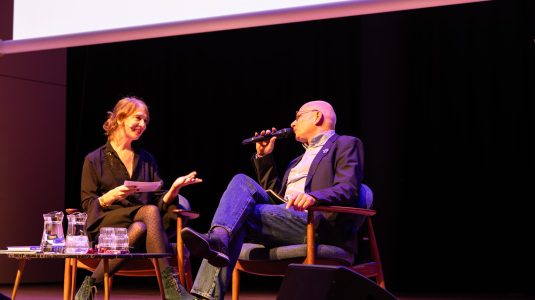Interview with Derk-Jan Eppink, speaker at European Investigative Journalism Conference, Brussels
 BRUSSELS, 09/10/2008. “Journalists have to be inventive in obtaining information and grill those responsible.” – says Derk-Jan Eppink author of the book “The life of a European Mandarin“. On the European VVOJ conference he will talk about what is happening behind the closed doors of the European Commission., in fact, his personal history of seven years as a member of the Commission. In this interview he emphasizes the importance of investigative journalism as a tool to solve problems of the 21st century.
BRUSSELS, 09/10/2008. “Journalists have to be inventive in obtaining information and grill those responsible.” – says Derk-Jan Eppink author of the book “The life of a European Mandarin“. On the European VVOJ conference he will talk about what is happening behind the closed doors of the European Commission., in fact, his personal history of seven years as a member of the Commission. In this interview he emphasizes the importance of investigative journalism as a tool to solve problems of the 21st century.
Your book called The Life of a European Mandarin was published last year. Journalists say, „It is an ironic glimpse of life in Europe’s corridors of power.“ Is this „ironic“ voice a way of being investigative?
Yes, irony is a good way to show the inner workings of the EU to outsiders while keeping some distance to the insiders. The book was not investigative journalism in the traditional sense of the word. It mainly described my own story by which the readers get to see the Berlaymont from the inside. I read many books on American politics of people who worked in high policy positions. Often they publish a book just after they leave. Europe does not have that tradition, perhaps because few people leave. Americans want transparency for the American people, but in Europe a sense of secrecy is generally preferred to openness. I did not intend to publish a scandal book, because it doesn’t bring anything and others did it already. A scandal book is not my style. I promote insight and wanted a book accessible to a broader public that read like a non-fiction novel. I also wanted to associate Europe to humour, the latter being an important feature of life often absent in the corridors of Europe.
Do you use any kind of investigative technique in your book?
I used some investigative approach to get into some details of policy areas, like immigration, the service directive and the take over directive. The postal directive simply became part of my life because it was in my portfolio and I had to work hard to get it adopted in the various European institutions. But finally these files became part of the general narrative which demonstrated how Europe works, or sometimes doesn’t.
Why did you decide to publish so many inner information of the European Commission’s life? How did you make sure that your book is based on the truth and facts?
I wanted to show how the Commission works and operates and I made sure I did not use any classified information. All information I used is generally accessible on the Internet, on the website of the Commission. As a result I could not write about security issues, personnel appointments or ongoing court cases in which the Commission is involved. So, my factual framework is available in the public domain, either in Commission publications or in the media. That is probably the reason why the Commission authorized the publication of the book. According to staff regulations I had to submit a request for authorization because I published the book shortly after I had left.
In your book you write about your personal experiences in the EU bureaucracy. At which points is your book related to investigative journalism?
The book is a combination of personal experiences and some investigative methods. But it is the work of an insider, so I didn’t have to dedicate months of work on factual backgrounds. Meetings I described I had been to myself. An investigative journalist is an outsider trying to get an inside view. I was an insider trying to portray a reality to the outside world.
Is there a certain theory you have about investigative journalism you apply in your publications?
If you look into a matter you need to get the facts right. That is the basic rule. Secondly the context needs to reflect events and the timeline must be accurate. Now, this book is the EU as I experienced it. I saw things through my own prism and the way I felt them. There may be people who say: Oh, but event that was different, and that background was not accurate? I wrote it the way I saw it. So, it is not a general history book of the seven years I spent in the Commission. It is my personal history; it describes my story, my experiences in a way accessible to a broader public. I used the style of the BBC-programme Yes Minister to inject humour and irony in the European veins. I think the Yes Minister approach was widely recognized appreciated. The combination Europe-humour was new. I got positive reviews in the Daily Telegraph, the Financial Times, the New York Times and Foreign Affairs.
In one of your speeches about your book, you said „the EU is an Empire without a real emperor… the bureaucratic machinery is too slow and mission unfocused“, how do you think investigative journalism can play a role in this?
I think investigative journalism should be an important part of reality in European politics. I remember some papers started writing about the transfers and recipients of European agricultural funds. Initially governments rejected transparency with regard to issues like who received what amount of subsidies. But a wave of publications forced most governments to publish the information. So here journalism was doing the right thing: opening up a channel of information to citizens. A critical, journalistic approach of proper research keeps the EU focused and close to its mission. It may also speed up the machinery, preventing it from becoming too slow.
Do you think investigative journalism can find a way to catch people‘s attention and direct it to the problem of the EU Commission’s bureaucracy?
By reporting accurately and press for solutions. Ask the question: what is Europe doing? Take the crisis in the financial sector. Here is a crisis at hand, but what did the Commission do to assure proper oversight in the financial sector? It once adopted a financial action plan. What actions did the Commissioner responsible take? Or why didn’t he do anything while he saw the storm coming? So, journalists have to be on the ball. They have to be inventive in obtaining information and grill those responsible. Now, many journalists are too much in a waiting mode, receiving information from the press service on daily press conferences, making interviews and report. Now that also has to be done. But it is not enough. Investigation is needed on top. European institutions are big, journalists have to tap information, work the system and channel information to the relevant issue on the political agenda. So, it is not a matter of scandal digging, but rather of political agenda related information that must be part of the public domain. I think transparency and accountability are the two jet engines for political progress. Here, investigative journalism plays the role of accelerator.
Why do you think it is important to attend the conference?
I think it is important because journalists can go there and talk about ways to strengthen investigative journalism. Europe needs investigative journalism, like every member state needs it. Why do we have it in the UK, Germany, France, or elsewhere and not in Brussels? I think there it is needed most. The conference could give insight in ways and means to insert investigative journalism into daily reality of European politics.
Author: Borbála Keresztesy
Editor of Life of a European Mandarin (EN-NL): Lannoo
Biography of Derk-Jan Eppink:
 Derk-Jan Eppink (born November 7,1958) is a Dutch journalist and former cabinet secretary for European Commissioners Bolkestein and Kallas.
Derk-Jan Eppink (born November 7,1958) is a Dutch journalist and former cabinet secretary for European Commissioners Bolkestein and Kallas.
Eppink was born in Steenderen, Gelderland. He worked for the Dutch newspaper NRC Handelsblad before moving to Belgium in 1995, where he obtained work with De Standaard newspaper. In 1999, he received a position in the cabinet of European Commissioner Frits Bolkestein. Since 2005, he has worked as political analyst for the Belgian television network Actua-TV. As of 2007, Eppink lives in New York, but still writes for the weekly Dutch magazine Opinio – a project of former Compaq and Philips managerRoel Pieper – and for the Flemish weekly Trends. In January 2007, Eppink received the 2006 Prize of Liberty from the Flemish think tank Nova Civitas. In March 2007, he launched his book Europese mandarijnen (Life of a European Mandarin), on his experiences in the EU bureaucracy. He gave a lecture about this subject and about the EU in general, at the Roosevelt Academy on November 14, 2007.

Derk-Jan Eppink will speak at the European Investigative Journalism Conference on 21st and 22nd of November 2008, co-sponsored by The Pascal Decroos Fund.








